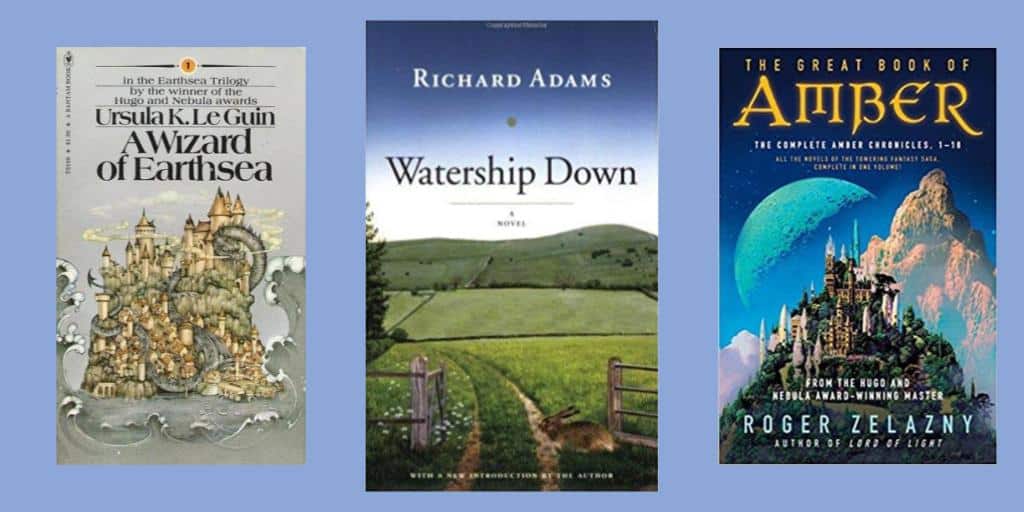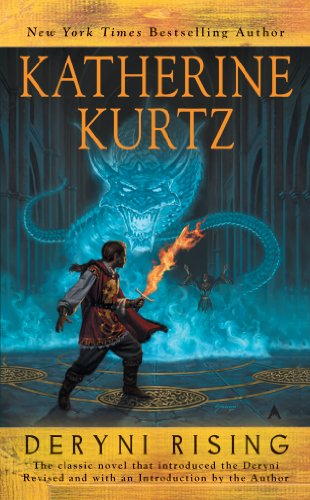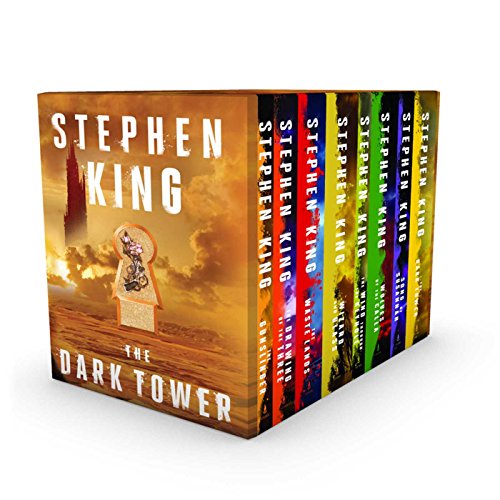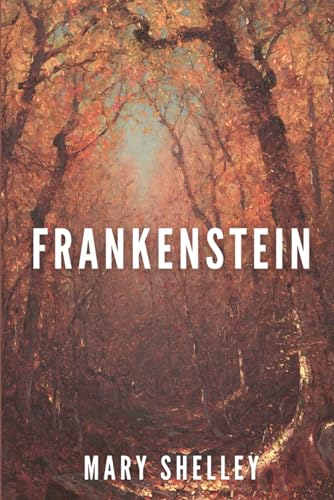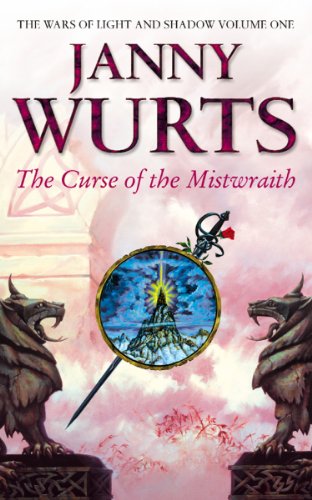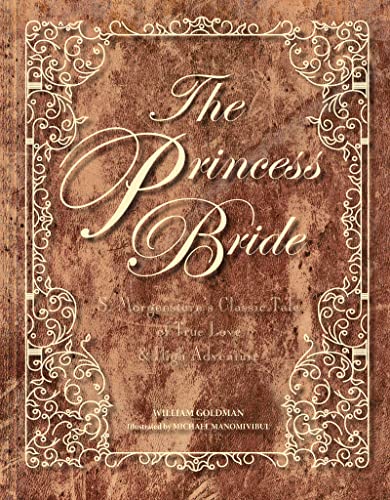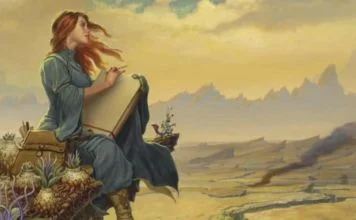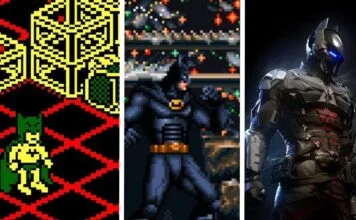Nerd Much? might get a small share of the sale if you click links on this page, as we are a part of various other affiliate programs. For more, read our Editorial Standards.
Delving into the best fantasy books of all time is like entering a vast, uncharted universe of imagination and enchantment. In the realm of fantasy, the extraordinary becomes ordinary, allowing dragons to rule the skies and magic to flow as freely as the rivers. This curated selection of the top 50 fantasy books isn’t just a list; it’s a portal to otherworldly adventures that have spellbound readers across generations.
These books are more than mere stories; they are windows into worlds where the fantastical is reality. From timeless classics that have become the bedrock of fantasy to modern tales that push the limits of narrative, each book in this collection has been chosen for its power to transport readers into lands of wonder and intrigue. Whether you are a seasoned aficionado or a newcomer to the genre, these books offer journeys that are both unforgettable and transformative.
1The Lies of Locke Lamora by Scott Lynch
Set in the Venice-inspired city of Camorr, The Lies of Locke Lamora introduces the quick-tongued Locke and his band of thieves, con artists, and general tricksters. This is an action-filled heist story in a setting that feels earthly and otherworldly at the same time.
The Lies of Locke Lamora is a debut novel by Scott Lynch, a fantasy novel set in the city of Camorr. The story revolves around the protagonist, Locke Lamora, who is the leader of a group of thieves known as the Gentlemen Bastards. The group uses their wit, charm, and cunning to carry out elaborate heists, making themselves rich and powerful in the process. The city of Camorr is ruled by a mysterious entity known as the Capa, who is under the threat of a powerful rival, the Gray King.
The plot thickens when Locke’s group is tasked with a seemingly impossible heist, which leads to a dangerous game of cat and mouse with their enemies. The novel is filled with action, adventure, and suspense, as well as themes of loyalty, friendship, and betrayal. With its richly developed world, complex characters, and intricate plot, The Lies of Locke Lamora is a must-read for fans of fantasy and adventure novels.
2The Dresden Files by Jim Butcher
The Dresden Files is a series of urban fantasy novels written by Jim Butcher. The series follows the adventures of Harry Dresden, a wizard and private investigator living in modern-day Chicago. The series has gained a dedicated following and has been praised for its engaging characters, witty dialogue, and intricate world-building.
The series begins with “Storm Front,” in which Harry Dresden is hired to investigate a series of murders that appear to have been committed using magic. As the series progresses, Harry becomes embroiled in a variety of supernatural conflicts, including battles against vampires, werewolves, faeries, and demons. Along the way, Harry also confronts personal demons, including his own traumatic past and the consequences of his actions.
One of the strengths of The Dresden Files is its complex and well-developed world-building. The series draws on a variety of mythological and folkloric traditions, as well as Butcher’s own imaginative creations, to create a rich and diverse supernatural landscape. The series also features a variety of supernatural organizations and factions, each with its own agendas and power struggles.
Another strength of The Dresden Files is its character development. Harry Dresden is a compelling and relatable protagonist, with a dry wit and a tendency to get into trouble. Butcher also populates the series with a wide cast of supporting characters, each with their own distinct personalities and motivations. Many of these characters, including Harry’s police officer friend Karrin Murphy and his apprentice Molly Carpenter, undergo significant growth and development throughout the series.
The Dresden Files also features a mix of action, humor, and mystery. The novels are fast-paced and full of thrilling set pieces but also feature moments of humor and levity. The series also includes a number of intriguing mysteries and investigations, with each novel featuring a self-contained plot while also contributing to the overarching narrative of the series.
That being said, it does come off a bit misogynistic, at times (as this Reddit thread will discuss at length). But after book three, Harry’s misogyny is toned down, and at one point it even becomes more of a character arc for Harry.
We also included The Dresden Files in our list of the best dark fantasy books of all time.
3The Chronicles of the Deryni by Katherine Kurtz
The Chronicles of the Deryni is a series of historical fantasy novels written by American author Katherine Kurtz. The series is set in a fictional kingdom called Gwynedd, which is inspired by medieval Wales. The novels explore a world where magic and politics intersect, and where a powerful group of people with magical abilities called the Deryni are feared and persecuted by the ruling classes.
The series follows the story of the Deryni race, a group of people with the ability to use magic. The Deryni are shrouded in mystery and fear, with many people believing them to be evil and demonic. The series’ protagonist is a young Deryni prince named Kelson Haldane, who is the rightful heir to the throne of Gwynedd.
The novels are set in a complex and richly-detailed world that is heavily influenced by medieval European history. The politics, religion, and social hierarchy of the kingdom of Gwynedd are all intricately woven into the story, adding depth and complexity to the narrative.
The series is known for its detailed world-building, complex characters, and political intrigue. The characters in the series are well-developed and multifaceted, with their motivations and actions often driven by political and personal agendas. The use of magic in the series is also a major theme, with the Deryni using their abilities to influence and manipulate the world around them.
The Chronicles of the Deryni is also notable for its exploration of themes such as prejudice, religion, and power. The persecution of the Deryni is used as a metaphor for the oppression of minority groups throughout history, and the series explores the ways in which power can be used to oppress and marginalize those who are different.
The series began with the publication of Deryni Rising in 1970 and continued with several more novels over the next few decades. The books were highly popular among fans of the fantasy genre and have been translated into several languages. The series has also inspired a number of spin-off novels, as well as a tabletop role-playing game.
4The Black Magician trilogy by Trudi Canavan
In a reversal of the traditional “magic university” plot, The Black Magician is set in Kyralia, a world where magic is preserved for the elite. When a girl from the slums of Imardin named Sonea discovers powerful magic of her own, the Magicians’ Guild attempts to capture her for her own good and for the safety of the city. Sonea, naturally, has very different plans.
5A Connecticut Yankee in King Arthur’s Court by Mark Twain
In one of the earliest examples of time travel fiction (which also makes this a sci-fi novel of sorts), Mark Twain explores the possible consequences of an educated 19th-century man being transported to the time of King Arthur, where he is mistaken for a magician. Hank Morgan, the unwitting time-traveler, becomes the nemesis of Merlin, and ultimately gains influence in the land of Camelot.
6Tigana by Guy Gavriel Kay
With his pseudo-historical and low-magic style, Guy Gavriel Kay creates a convincing world in Tigana. A tyrant has kept a people from their homeland — few can even remember it. But a brave collection of passionate characters stand up for their home and their culture. There aren’t enough standalone books in fantasy, and this epic is neatly packaged in one volume.
7Heralds of Valdemar by Mercedes Lackey
Another classic series out of the 80s, Lackey’s Valdemar books imagine a world of magic, mystical horses, and convoluted schemes. Talia is a charming protagonist who is easy to root for as she protects her queen and her land from enemies.
8The Witcher by Andrzej Sapkowski
The books that inspired the best-selling video game franchise and, now, a highly-rated Netflix television series, are just as beloved, particularly in Europe. The Witcher books (sometimes novels, sometimes short story collections), follow Geralt of Rivia as he seeks to rid the world of evil creatures. If your story in The Witcher 3: Wild Hunt didn’t go as planned, give the books a shot.
9Dragon Prince by Melanie Rawn
Rawn’s Dragon Prince series follows a young prince who comes into power suddenly and must navigate difficult political circumstances to keep peace among princedoms while protecting the endangered dragons. A classic trilogy out of the 80s that may seem a bit cheesy today but is still a lot of fun.
10The Riftwar Saga by Raymond E. Feist
A young orphan finds himself in the center of a conflict between the powerful forces of Order and Chaos in Feist’s classic series, which begins with The Magician. Inspired by tabletop RPGs, this series has a trope-y feel to it that is nostalgic and charming.
11The Belgariad by David Eddings
A first fantasy series for many, Eddings’s The Belgariad books are far from original—the protagonist is a simple farm boy who is chosen by a prophecy—but they are fun, light reads that can be a great introduction to the genre.
12Kushiel’s Dart by Jacqueline Carey
This book’s cover gives you a good idea of what lies ahead: Kushiel’s Dart introduces the beautiful land of Terre d’Ange and a young courtesan named Phèdre nó Delaunay. She is talented in the courtly arts, and also in the art of intrigue, making her a key player in a massive shift of power in Terre d’Ange.
13Crown of Stars by Kate Elliott
Elliott’s seven-book series is one of kingdoms, royalty, sorcerers, and wars—and it’s all founded on memorable characters in the middle of conflicts much bigger than themselves. This series is often overlooked, but Elliott’s writing and characters make it one of the better series to come out of the 90s. And at seven books, it’s a great length tow plow through in a few months.
14His Dark Materials by Philip Pullman
Seen by many as the counter to C. S. Lewis’s The Chronicles of Narnia, Philip Pullman’s trilogy begins with The Golden Compass and tells the story of the bold Lyra and her journeys between worlds. This classic young adult series deals with dark and difficult problems and should be required reading—rather than being banned.
15Riyria Revelations by Michael Sullivan
If you’re looking for something quick, adventurous, and memorable, Riyria Revelations is a great six-book series in a charmingly traditional fantasy setting. Riyria is the story of two thieves and their heists, quests, and plots. And each book is short enough that you’ll want to read them back-to-back.
16The Dark Tower by Stephen King
Stephen King’s genre-blending eight-book series is one that stretches across his prolific career as a writer. Not only can you see his writing grow and develop with each book, but you can also find connections with other novels in King’s multiverse. The Dark Tower has its highs and lows, but overall it’s an impressive achievement.
You can find more of Stephen King’s books on our list of the best horror books of all-time, too.
17The Sword of Truth by Terry Goodkind
One of fantasy’s most divisive series is also one of the bestsellers, with over 20 million copies sold. Terry Goodkind’s epic fantasy series begins with Wizard’s First Rule and follows the Seeker of the Truth, Richard Cypher, in his adventures against the dark powers of the world. Goodkind may be preachy, but there’s a lot of fun and adventure to be had with these dark, brutal books.
18Jonathan Strange & Mr. Norrell by Susanna Clarke
Clarke’s tale of 19th-century magicians is unusual in its density and realism, creating an image of historic England that’s so detailed it feels like an account of true events. But in the middle of this realism is magic—powerful, logical, dangerous magic.
19The Magicians by Lev Grossman
If you’ve read a good deal of modern fantasy, there’s a good chance you’ll appreciate Grossman’s satirical, knowingly derivative Magicians trilogy, whose inspiration is a mix of Harry Potter and Narnia. The characters are truly pathetic, but they’re fun to read about — and Grossman’s clever, tongue-in-cheek style is endlessly fun.
20One Hundred Years of Solitude by Gabriel García Márquez
Despite its magic, otherworldly qualities, fictitious setting, and general elements of the bizarre, One Hundred Years of Solitude is not considered fantasy by some but instead magical realism. The fantasy of Márquez’s most famous work shows throughout the story, in the family whose members live to impossible ages, in the plague of insomnia that consumes Macondo. It’s a dense read without a doubt, and you’ll easily become lost in the complicated family tree, but beneath its tough exterior is a truly wonderful story. It’s one of fantasy’s greatest works, and though it may be magical realism by technicality, all magical realism is fantasy.
21Mistborn by Brandon Sanderson
As far as intricate, mathematical magic systems go, it doesn’t get much better than the original Mistborn trilogy. Each book in the series builds on the last and has its own feel, and the world Sanderson has created has a fascinating history that is explored thoroughly. Some readers fault the series for its video-game-style action, but that’s all a part of the fun.
22Frankenstein by Mary Shelley
One of the most iconic monsters of all time has his origin in Mary Shelley’s Frankenstein, one of the few fantasy books to make its way onto required reading lists in American schools. Those whose only exposure to Frankenstein’s monster has been movies and TV may be surprised by the novel’s philosophical style and dark themes.
23The Kingkiller Chronicle by Patrick Rothfuss
Rothfuss writes prose and poetry that evokes cozy taverns and evenings around a campfire in his bestselling fantasy trilogy, The Kingkiller Chronicle, which began with The Name of the Wind in 2007. The books follow the legendary Kvothe as he retells his youthful adventures to a historian. The frame-story is a lot of fun, and Kvothe’s tales of university days make this series a sort of fantasy “slice of life.” Though we’re all still waiting on the final installment, the first two books stand well on their own.
24Song of the Lioness (and the rest of the Tortall books) by Tamora Pierce
Pierce’s first novel in her wonderful Tortall universe is Alanna: The First Adventure. The book introduces Alanna of Trebond, who wants nothing more than to train to be a knight. After trading places with her brother, Alanna embarks on the adventures that will solidify her as a legend of Tortall.
25Wars of Light and Shadow by Janny Wurtz
Janny Wurtz’s intricate, well-researched epic fantasy series tells the story of the half-brothers Arithon, Master of Shadow; and Lysaer, Lord of Light. Her prose is dense, and ten books (with one more shortly on the way) is a lot, but Wurtz’s books are impressive works of high fantasy that have aged well.
26American Gods by Neil Gaiman
Though we now have a faithful and well-received TV adaptation, Neil Gaiman’s American Gods is an ambitious and powerful fantasy novel that will likely be talked about for decades. It features a cast of gods who are a bit washed up, their power having waned in the modern age. But a war is brewing with new, modern gods, a war that ex-con Shadow Moon has somehow found his way into.
27The Master and Margarita by Mikhail Bulgakov
Written during Stalin’s regime, The Master and Margarita envisions Satan creating chaos among the literati of Soviet Russia. Parallel to this story is the tale of Pontius Pilate and Yeshua’s execution in ancient Jerusalem. This is the sort of novel that may make you feel as if you’re losing your mind alongside Satan’s many victims.
28Perdido Street Station (and all of the Bas-Lag series) by China Miéville
China Miéville is one of fantasy’s modern pioneers, and Perdido Street Station is an excellent place to start. The book introduces the strange city of New Crobuzon, which is dark, filthy, and populated with non-traditional fantasy races. For something entirely unlike anything else you’ve read, China Miéville has you covered.
29The Stormlight Archive by Brandon Sanderson
Brandon Sanderson is a student of the masters, and The Stormlight Archive is his magnum opus and tribute to the fantasy genre. Though only three books of a planned ten have been released so far, this series has a lot of momentum and an ever-growing fanbase. If George R. R. Martin and Patrick Rothfuss continue their dry spells, Sanderson will probably take over as the most popular fantasy author of today. You can read more about why you should read The Stormlight Archive here.
30Watership Down by Richard Adams
Adam’s masterpiece follows a community of (talking and thinking) rabbits as they are displaced from their home and must find somewhere new to live. Though the story is set in England (and is about rabbits) it has distinct elements that set it firmly in the fantasy genre — and as one of the genre’s best works.
31The Drenai Tales by David Gemmell
Gemmell’s Drenai books chronicle the feats of Druss the Legend and other heroes of the Drenai people. His stories use archetypal characters in the best way, often pushing them to their limits through their conflicting goals and perspectives. Each book in the series is unique in its plot or structure, making this a great series to read straight through.
32Memory, Sorrow, and Thorn by Tad Williams
Tad Williams’ Memory, Sorrow, and Thorn trilogy solidified his legacy as one of fantasy’s greats. Though the series may not seem original today, that’s only because its influence has been far-reaching—George R. R. Martin has attributed the inspiration for A Song of Ice and Fire to Williams’ phenomenal trilogy. Beginning with The Dragonbone Chair, the trilogy introduces Williams’s dark and magical world of Osten Ard.
33The Realm of the Elderlings by Robin Hobb
Robin Hobb’s The Realm of the Elderlings books, which began in 1995 with Assassin’s Apprentice, take place in a world with a fascinating magic system and compelling (and often very flawed) characters. Hobb’s prose is the real force behind the series, though her worldbuilding and characters alone make these books worth reading.
34A Song of Ice and Fire by George R. R. Martin
If you’re a fan of the show but haven’t read the books yet, what are you doing? While you wait for the final season, dig into the source material that has defined three decades of fantasy. Or, if you don’t have HBO, skip the show and read the books! If morally gray characters are your thing, this series cannot be overlooked.
35The Chronicles of Narnia by C. S. Lewis
S. Lewis’s classic children’s fantasy is another great example of portal fantasy done well, and each of its works feels complete on their own and provides different perspectives of the world of Narnia. If you’ve never read beyond The Lion, The Witch, and the Wardrobe, you’re missing out. Prince Caspian in stands out as an excellent adventure story. Reading Narnia today will illuminate references throughout the rest of modern fantasy.
36The Once and Future King by T. H. White
There are many retellings of the legend of King Arthur, but this is one that can’t be overlooked. This is the same book that inspired Disney’s The Sword in the Stone. Divided into four parts (originally published as novels), the book is a great introduction to Arthurian fantasy.
37The Chronicles of Amber by Roger Zelazny
Zelazny’s classic, ten-book series is portal fantasy at its best. Between the true world of Amber and Chaos are several shadow worlds, like Earth. Zelazny has been the inspiration of many of today’s prominent fantasy authors, and though the series is forty years old, it’s a classic that holds up well.
38Dragonriders of Pern by Anne McCaffrey
Though these sit somewhere between sci-fi and fantasy, they’re still essential fantasy reading. McCaffrey’s Pern books feature dragons who form telepathic connections with their chosen riders. If you like your reading with a healthy dose of dragons, this series is a must-read.
39The Princess Bride by William Goldman
Though the book will never rival the renown of the movie adaptation, Goldman’s The Princess Bride is everything you’d expect and then some. It may be campy at times, but that’s the point. Goldman’s clever writing and humor make this a classic work of fantasy.
40The Last Unicorn by Peter S. Beagle
Don’t be deterred by the title of the idea of a unicorn as a protagonist — Beagle’s The Last Unicorn is still an iconic work of fantasy that is filled with wonder and hope that can offer a pleasant contrast to today’s grimdark fantasy.
41A Wrinkle in Time by Madeleine L’Engle
This book is so wonderful that it landed on both our best fantasy and best sci-fi books lists. A Wrinkle in Time is the perfect example of how children’s literature can be more than introductory reading — it can be transcendent. L’Engle’s storytelling and endless imagination make this book a must-read, even 50 years later.
42Conan the Cimmerian by Robert E. Howard
One of the first works of swords and sorcery, Robert E. Howard’s Conan books have left their mark on the fantasy genre and been adapted as films and video games. Howard’s stories of Conan are filled with peril, adventure, and cunning — they’re just fun, and their long-held place as one of fantasy’s defining works is well-deserved.
43Gormenghast by Mervyn Peake
The only series that was anywhere close to the popularity of The Lord of the Rings in the 1960s was Mervyn Peake’s Gormenghast. The five books follow the royal family of Gormenghast, an enormous castle in a grim world.
Often considered to be a superior work to The Lord of the Rings by literary critics, Gormenghast is a gothic masterpiece that often falls in the shadow of Middle Earth.
44Kagen the Damned by Jonathan Maberry
Kagen The Damned is a dark epic fantasy novel by Jonathan Maberry first published in 2022, which was quickly followed by its sequel (Son of the Poison Rose) in early 2023.
Essentially, Kagen the Damned follows the story of its titular character who was once a loyal and feared captain of the palace guard who was tasked with protecting the royal children of the Silver Empire. The story begins after Kagen wakes up after being drugged to find the royal family dead, including the children he swore to protect. Fueled by his rage, Kagen ventures into strange lands to take on those responsible.
One of the strengths of “Kagen The Damned” is its vivid and immersive world-building. Maberry paints a detailed picture of a shadowy underworld filled with danger and intrigue, populated by a rich variety of supernatural creatures. The novel also explores the psychological toll of Kagen’s curse, and the toll that immortality and isolation have taken on him over the centuries.
It’s a fast-paced and action-packed plot that will leave you on the edge of your seat. The book is filled with tense, pulse-pounding moments as Kagen and his allies battle their enemies and struggle to survive in a hostile world. When that’s all paired with incredibly enjoyable characters, Kagen the Damned is an absolute must-read.
45The Wheel of Time by Robert Jordan
With Amazon’s planned adaptation of Robert Jordan’s epic 14-book series in development, this is a great time to read the series that defined 90s fantasy. Jordan’s epic series (which was completed by Brandon Sanderson after Jordan’s passing) explores a magic-filled world with 2,700 named characters. It’s long and sometimes slow, but there’s no journey quite like The Wheel of Time.
46Discworld by Terry Pratchett
Sir Terry Pratchett’s unique satire and worldbuilding will no doubt preserve Discworld among fantasy’s most beloved series — and that isn’t just because there are 47 published works in the series.
Discworld is a colorful, slightly demented world that rests on the back of a cosmic turtle named the Great A’Tuin. Pratchett pulls apart all sorts of fantasy tropes, all held together with his unique voice and humor. Discworld is required reading for the fantasy genre.
47Alice’s Adventures in Wonderland by Lewis Carroll
One of the first stories to imagine a place other than Earth, Alice’s Adventures in Wonderland is still relevant and very much worth reading.
Don’t let the label of “children’s literature” keep you away. Lewis Carroll’s prose is fascinating and often complex, and the characters of Wonderland will stay with you after you’re finished reading.
48Earthsea by Ursula K. Le Guin
When the late Ursula K. Le Guin wrote A Wizard of Earthsea, she did so to invert common fantasy tropes with her dark-skinned protagonist and examination of what a wise wizard looks like when they’re young and reckless.
That was in 1968, and today, her Earthsea books continue to invert today’s tropes—because authors are still writing plenty of quest stories and high fantasy. This fifty-year-old series was ahead of its time, and it’s a sign that the genre of fantasy literature still has plenty to explore.
49Harry Potter by J. K. Rowling
If Tolkien laid the foundation for 20th century fantasy, then Rowling laid the next generation. Like it or not, we’ll be seeing echoes of Harry Potter for decades. Though the series was derivative at the time it was written, people now think of Dumbledore as often as they think of Merlin or Gandalf when they hear the word “wizard.”
Without Harry Potter on your shelf, you will be missing references for decades—this is the series that multiple generations grew up with, and it will permeate fantasy culture and beyond for a long time.
50The Hobbit and The Lord of the Rings by J. R. R. Tolkien
Did you start reading this list only to be told to read the most influential modern fantasy series? Yes, yes you did. Without the world of Middle Earth, there might not be Dungeons & Dragons as we know it. So many of today’s archetypal quests are based on the moment when Bilbo Baggins and company encounter three trolls—this scene is the blueprint for “encounters” as we know them, whether they’re in tabletop RPGs, video games, movies, or books.
Today, we’ve seen series like Harry Potter and A Song of Ice and Fire reach incredible levels of popularity around the world, but will either of these stand out in sixty years? The best they can hope for is being mentioned in the same breath as Tolkien’s masterpieces.
